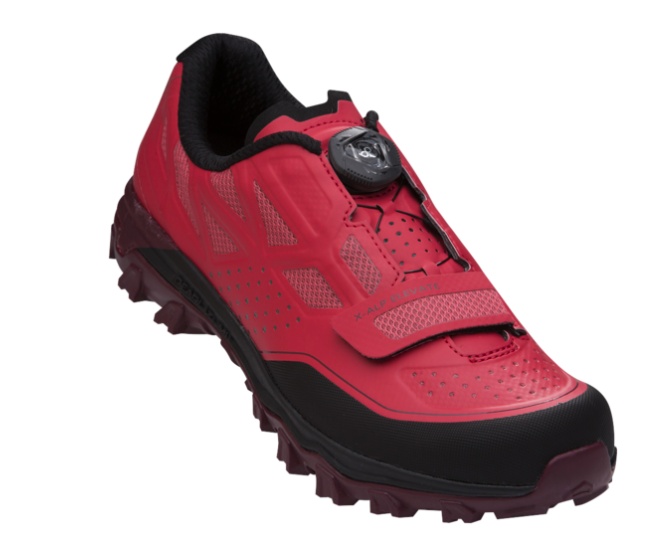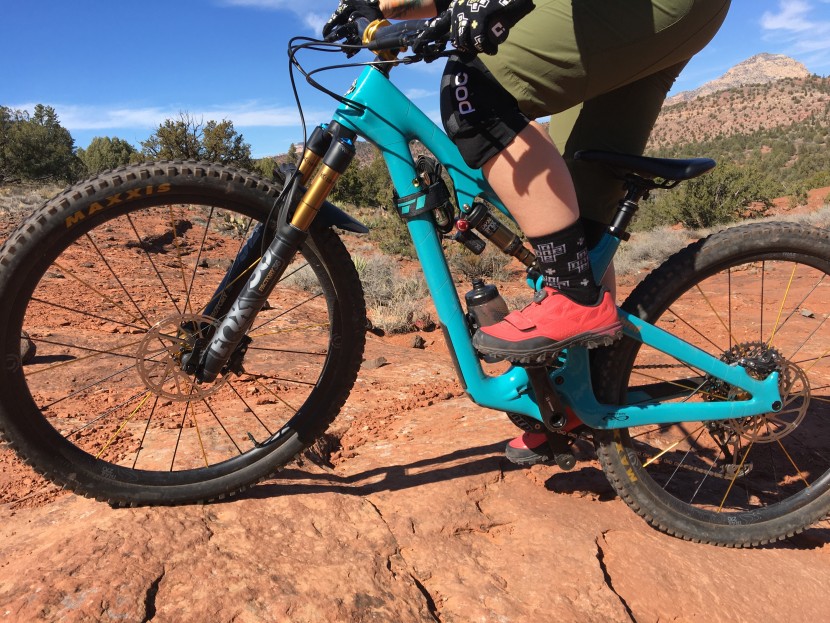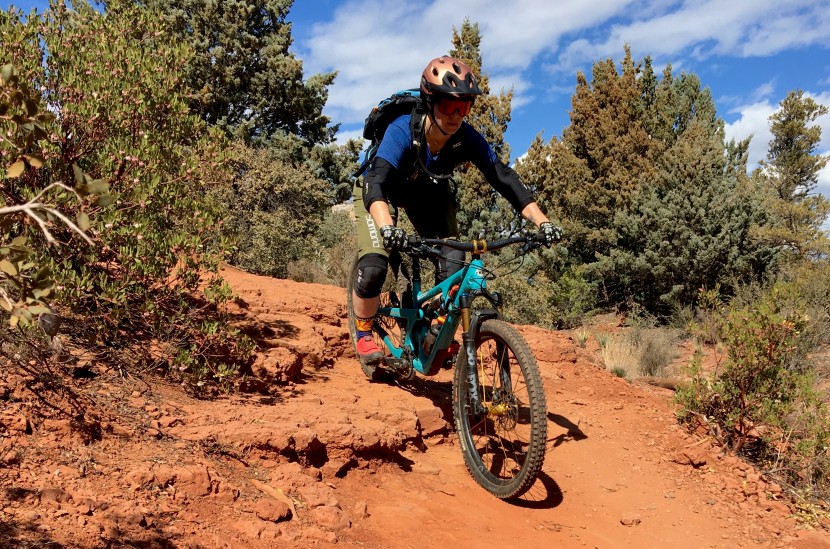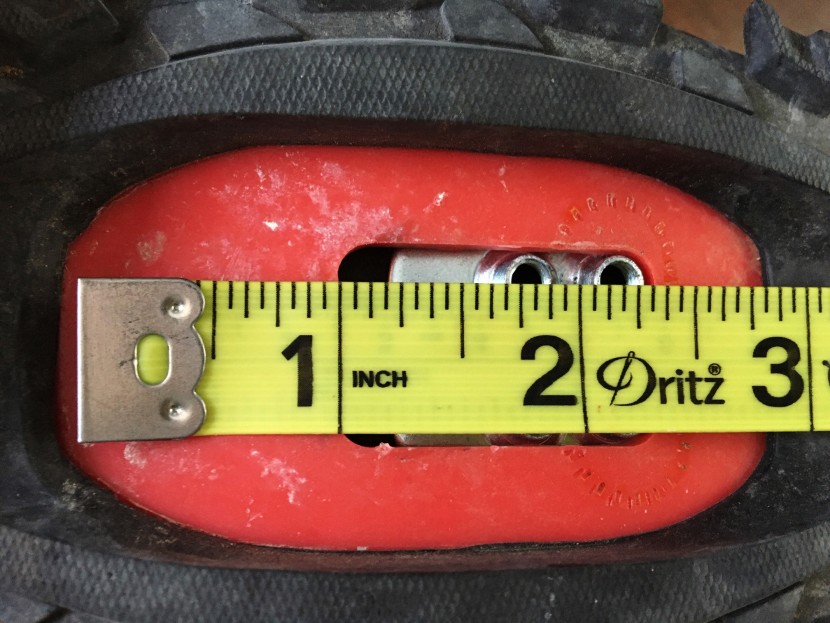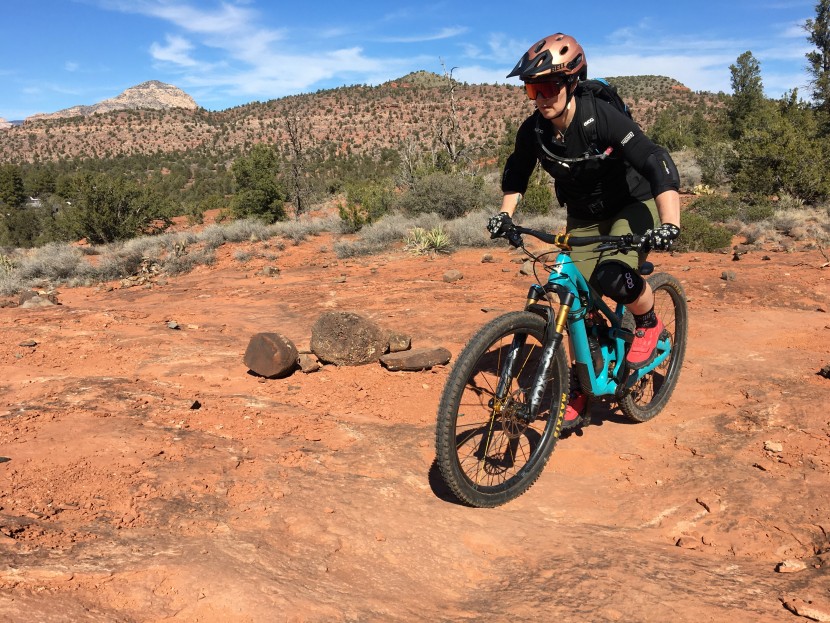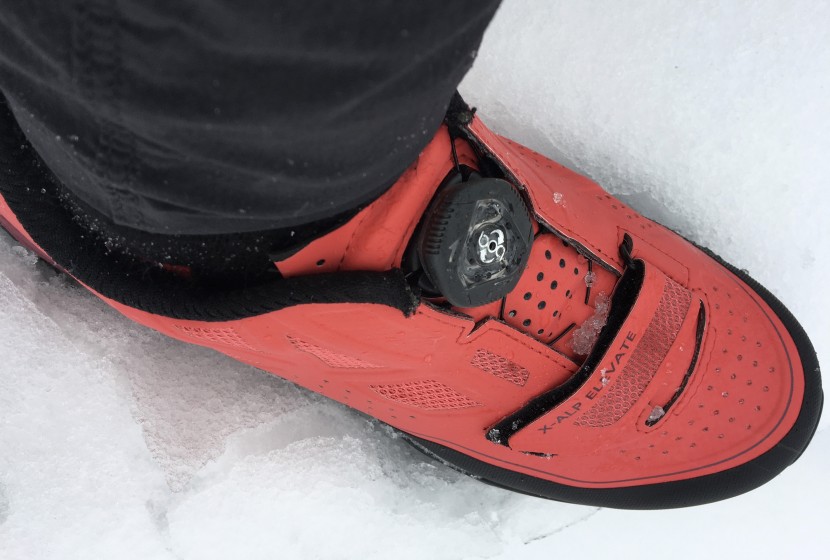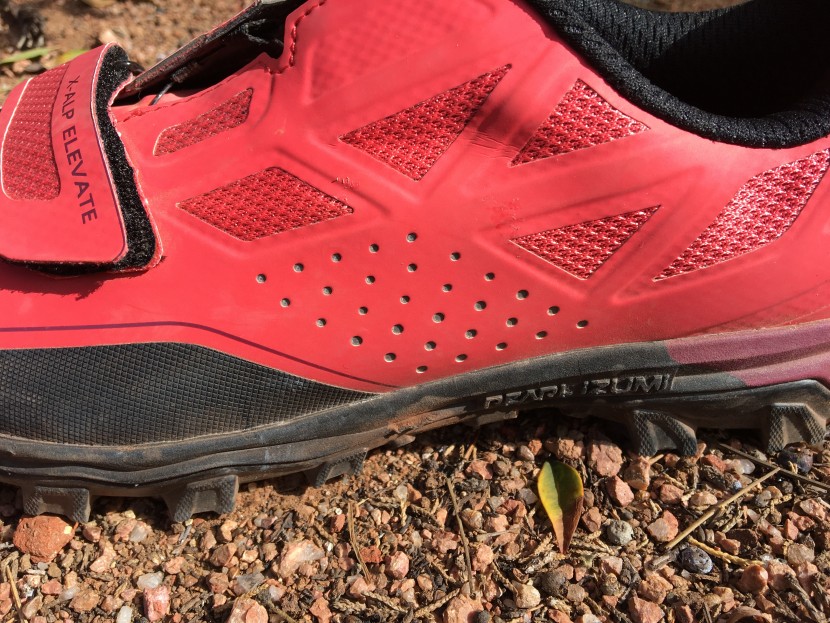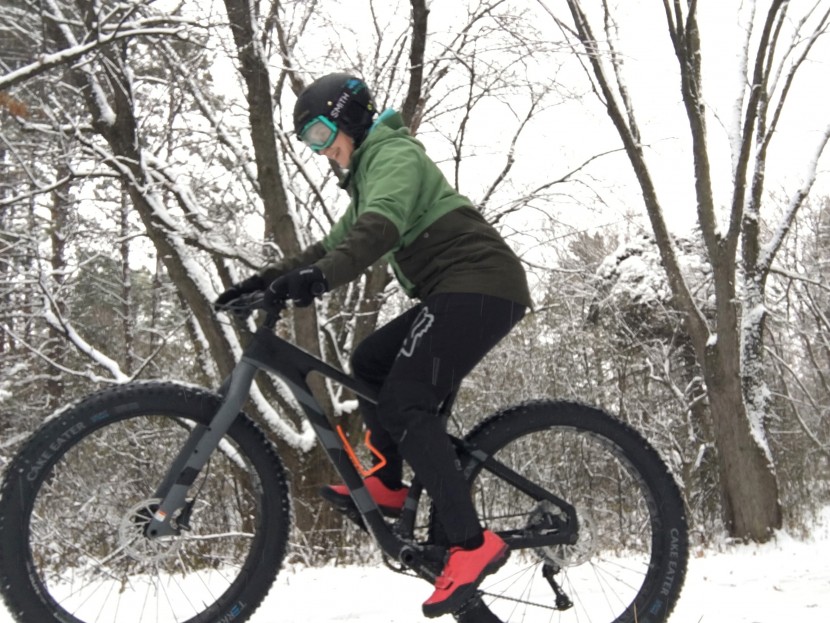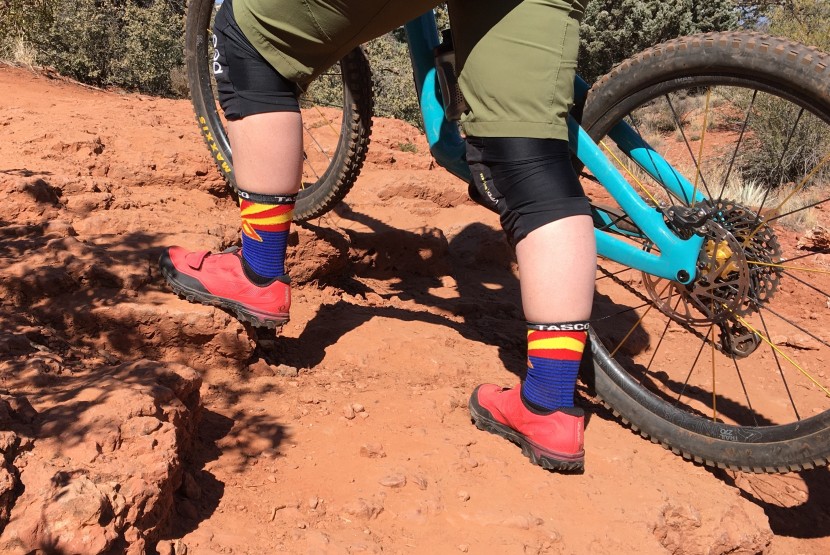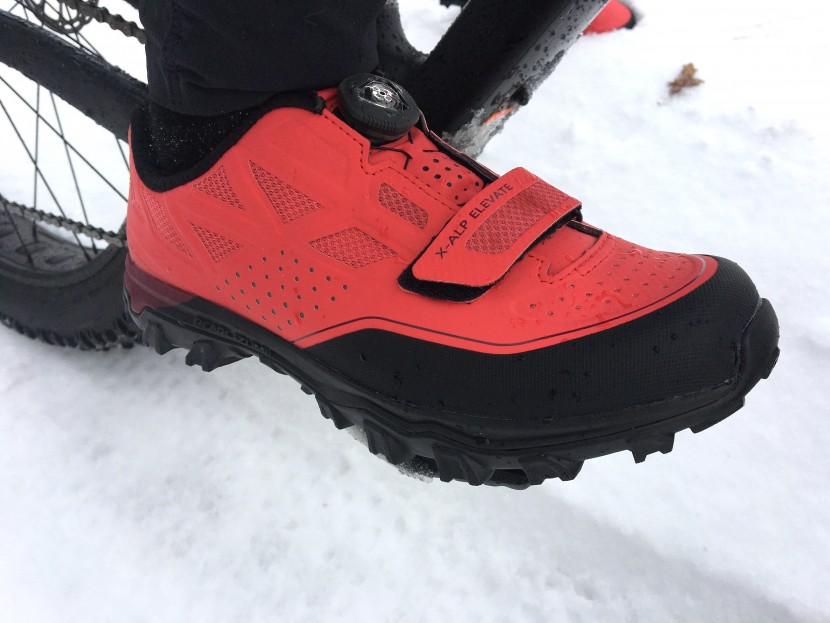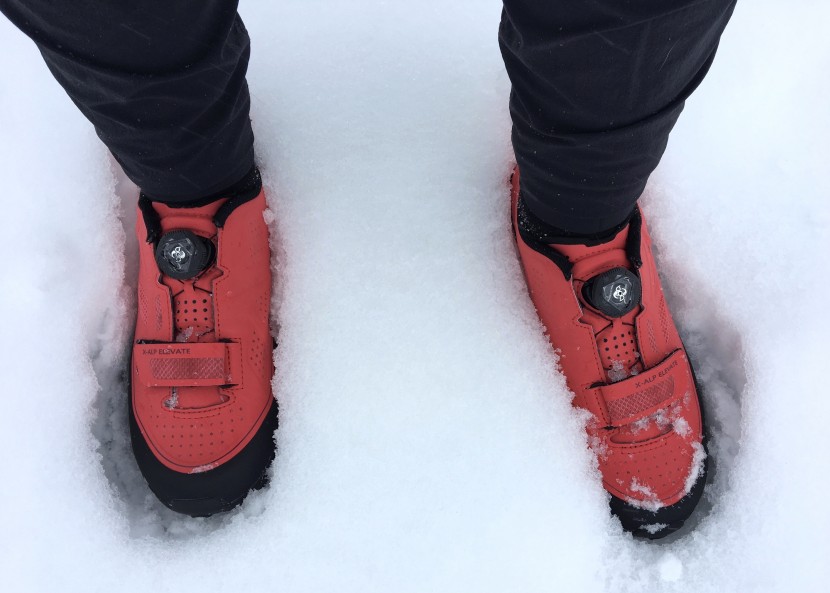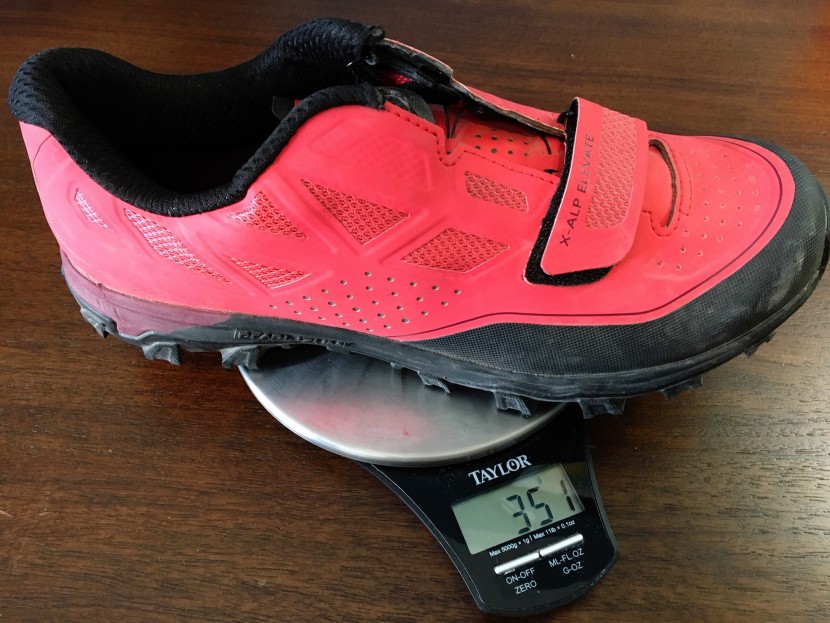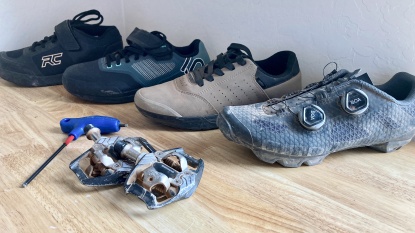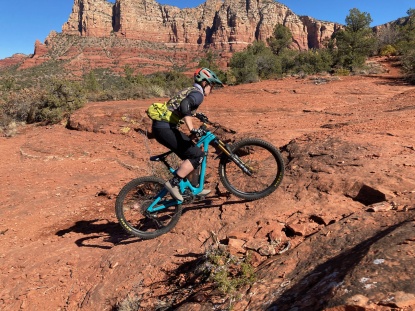Pearl Izumi X-ALP Elevate Review
Our Verdict
Our Analysis and Test Results
Pearl Izumi describes the Pearl Izumi X-Alp Elevate as “If you're down to ride anything, this is your shoe.” A claim which gave our testers initial pause, considering few shoes on the market, genuinely excel at being able to do-it-all. However, we were quickly won over by the shoe's exceptional power transfer and stability, walkability and comfort earning it our Editors' Choice. A stiff nylon and composite ¾ shank paired with an EVA midsole and EVA foam insole allows the rider comfortably push, pull, and stand on the pedals even on loose rocky descents, with minimal feedback into the feet. The large cleat opening provides some of the largest fore/aft adjustment of all the shoes we tested, making it easy for the rider to find their ideal cleat placement. On hike-a-bikes, we were sure-footed thanks to a Vibram sole, giving us support and grip on a variety of surfaces.
The shoe's Advanced 3-Layer Seamless Composite Upper impressed us with its breathability and ability to keep moisture out, two traits which typically do not go hand-in-hand. The only downside we could find to the X-Alp Elevate was in terms of the overall foot protection against rock strikes, as it lacks reinforced impact protection over the forefoot and midfoot. However, we feel that for a majority of riding applications, save enduro and downhill use, the shoe provides adequate protection.
Overall, the Pearl Izumi X-Alp Elevate not only performs well on the trail, it is also comfortable and proved itself to be quite versatile in a variety of riding conditions ranging from winter fat bike rides to desert laps, earning it our Editors' Choice for trail riding.
Performance Comparison
Stability and Control
The Pearl Izumi X-Alp Elevate features a nylon and composite ¾ shank, paired with an EVA midsole and EVA foam insole. Combined, they absorb vibrations from most trails without sending any feedback into the feet, which impressed our testers, as many of the shoes tested in a similar weight range did not have the same ability to absorb the trail so well. It was only on loose, fast, rocky descents that we were able to feel any feedback in our feet. While this is not painful, we are able to feel the trail a bit descending quickly over loose, rocky terrain. In addition, there is plenty of buffer between the soles of our feet and the cleat plate of the shoe, unlike some shoes whose cleat plate sit's directly under the insole allowing the rider to feel it under their foot.
Our testers were also impressed by the shoe's power transfer properties as we were able to easily push, pull, and stand on the pedals comfortably without being able to feel the cleat or pedal under our feet. The nylon and composite ¾ shank felt solid and did not flex under pressure giving us maximal control and stability while standing on the pedals during descents. The cleat opening on the X-Alp Elevate measures 1 5/16", giving us lots of fore-aft adjustment for our cleat, making it easy to find our ideal cleat placement. There is also ample space between the side of the cleat and the lugs on the sole of the shoe, making clipping in and out very easy.
During our pedal stroke, we found minimal movement of our foot in the shoe, allowing us to fully transfer power to the pedals. Only when we switched from our typical wool blend merino socks to a very lightweight synthetic socks did we notice movement which affected our pedal stroke.
Compared to other shoes we tested, the X-Alp Elevate performed more similarly to shoes, which weigh substantially more per pair, helping it to earn high marks in this metric.
Comfort
The X-Alp Elevate comfortably sits in the middle ground of not too wide and not too narrow, when compared to the other shoes we tested. It features a
Advanced 3-Layer Seamless Composite Upper helps to prevent pressure points or hot spots, which can be associated with seams. Its Boa lacing system allowed us to dial in the fit to the shoe in tiny increments, allowing us to adjust the fit both before and during our rides. This feature helps with the shoe's comfort, as feet can swell over the course of a long ride and being able to quickly loosen the lacing can help alleviate potential hot spots. At the front of the foot is a Velcro strap, designed to help customize the foot in the toebox area. As on other shoes that have a strap in the same location, we have found it to only provide very minimal adjustment.
Out of the box, our testers found the fit of the X-Alp Elevate to be quite comfortable. While wearing our typical merino blend riding socks, we noticed no fore/aft movement of our foot in the shoe, both while walking and while pedaling. It was only when we switched to a very lightweight sock did we notice a difference in the shoe's fit. This only mildly detracted from the comfort and performance of the shoe.
The upper of the X-Alp Elevate has small perforations combined with tight-knit mesh giving the shoe good breathability, keeping our feet cool and dry. Surprisingly, even while fat biking in Minnesota and while riding in the rain for over two hours, our feet stayed warm in the shoe with only wearing alpaca socks. These shoes impressed us with the versatility of use in a variety of weather conditions, something we can't say for most of the shoes we tested.
Walkability
Pearl Izumi touts the X-Alp Elevate as a shoe that is “perfect for scouting lines, hike-a-bike sections and explosive bursts of power on technical climbs”, our testers found the X-Alp elevate to be not only very comfortable on hike-a-bikes, but to also have very good grip. The nylon and composite ¾ shank flexes at the ball of the foot, allowing the shoe to comfortably move with the foot while walking.
The X-Alp Elevate features a Vibram outsole, which is found on hiking shoes, providing very good grip on rocky surfaces. Our testers felt sure-footed during hike-a-bikes, ranging from dirt, to slickrock, to loose, rocky uphills. However, we did find the Vibram not to be as sticky as shoes whose soles are made from climbing sticky rubber, which acts more like Velcro on the rock. Overall, these shoes performed very well on hike-a-bikes earning high marks for this category.
Protection
The X-Alp Elevate is reinforced over the front of the toebox giving extra protection to the toes, also adds a layer of protection to the shoe's upper against scuffs and potential tears to this area of the shoe. However, it does fall short in terms of impact protection for the rider's foot, as there is no reinforcement on the sides or directly over the forefoot as found on other shoes we tested.
The small perforations and mesh in the shoes upper do not adversely affect the shoe's ability to repel water, unlike other models whose large perforations allowed moisture to easily enter the shoe. We comfortably rode through puddles, in the snow, and even rain, and our feet stayed surprisingly dry.
For riders needing additional protection from rock strokes, we suggest looking at some of the more substantial shoes we tested, especially for enduro or park riding. However, we feel a majority of riders will find the protection offered by the X-Alp Elevate to be more than adequate.
Weight
The Pearl Izumi X-Alp Elevate weighs 351grams for a women's EU40 falling in the middle of the weight spectrum of all the shoes we tested. It feels very light on the foot, especially when compared to the All-Mountain and Enduro shoes we tested.
Value
While the Pearl Izumi X-Alp Elevate is one of the more expensive shoes we tested, it's relatively low weight and high performance helped it earn top marks in our testing. We feel that despite its price tag that it is an excellent choice for most riders seeking an all-round shoe.
Conclusion
The Pearl Izumi X-Alp Elevate is packed with features that impressed our testers, including its stiff, supportive sole for riding, flex, and grip for hike-a-bikes, overall comfort, and relatively low weight, a combination of traits not readily found in most shoes. It the shoe we want to reach for again and again, despite having many other pairs at our disposal, making it our Editors' Choice for trail riding.


